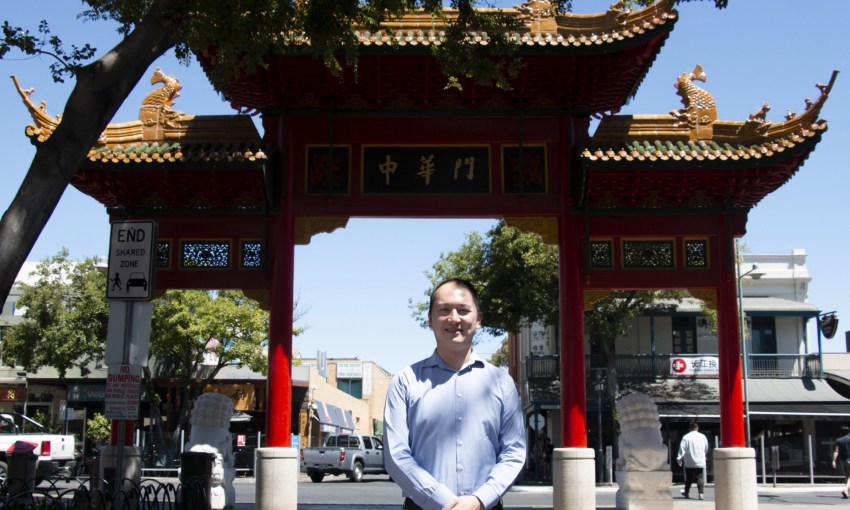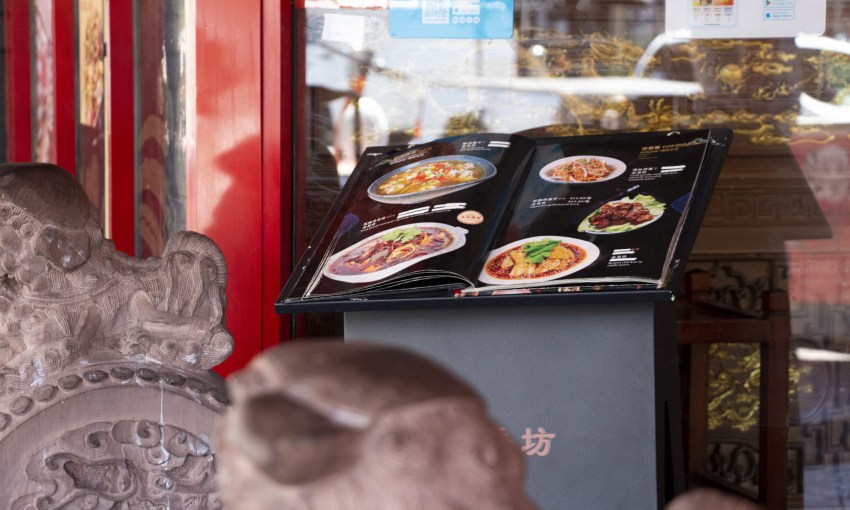Adelaide city councillor Simon Hou says businesses in Chinatown are still feeling the effects of the pandemic, but he’s optimistic the CBD’s south-east will recover from the tumultuous 2020.
‘We will bounce back’: Simon Hou on Chinatown’s COVID-19 recovery
SPECIAL REPORT: COVID-19 ADELAIDE
Councillor Simon Hou says he rarely flinches in the face of racism, because it’s not a reflection of him but of those who wield the ugly remarks.
Simon is a central ward councillor for the City of Adelaide, and, according to his local government profile page, boasts a dedication to “community service”, particularly among Adelaide’s Chinese community.
Outside of Town Hall, Simon is the president of the China Business Network of South Australia – a not-for-profit group promoting business interests between Australia and China – and is also the founder of DG Real Estate, which launched in 2009.
Simon moved to Australia from China 20 years ago. Back then, he studied medicinal science at Flinders University and says he always felt “welcomed” and supported as one of five Chinese students in his class. At that time, racism wasn’t a major concern for Simon.
In some respects, it still isn’t.
Simon says any racist attacks he receives don’t offend him personally as his “heart is a lot stronger compared with other people,” he says. Though he knows “other people might not be as tough as me”.
There has been an increase in the number of Asian Australians reporting instances of racism since COVID-19 landed in the country.
As early as February last year, Chinatown began to feel the social effects of the virus on its clientele, such as a severe downturn in trade, partly attributable to the 6000 international students banned from entering Australia due to coronavirus containment measures. Employees at the Market Plaza Food Court also reported to CityMag instances of verbal abuse for wearing face masks.
Due to his position within Adelaide’s Chinese community, Simon heard many reports of racism from the public. By October last year, he was receiving a couple of phone calls a week from people who would recount their experiences of anti-Asian discrimination.
Once such report came from his daughter, Elle Hou, who experienced COVID-influenced racism at a local dance studio.
“I realised something would need to change,” he says.
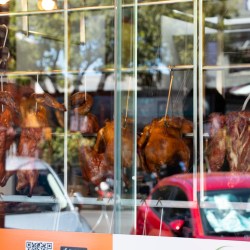
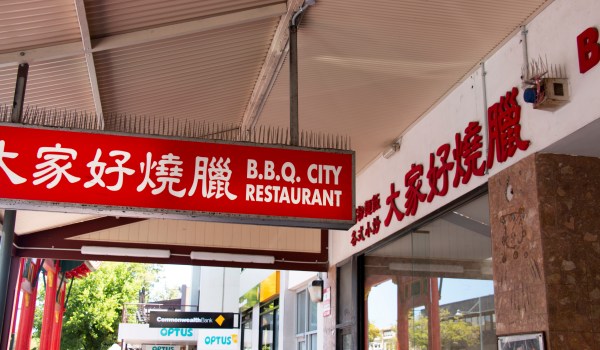
In addition to these social effects, the economic impact of the pandemic hit Chinatown traders hard.
Simon says “a lot” of businesses in the district were not covered by JobKeeper during the May shutdown, and the employees – often international students on student visas or migrants on bridging visas – received no federal support.
“The employees are unable to claim JobKeeper, and the business receives absolutely nothing from the Federal Government,” Simon says.
“I mean, just along the street, I think about 15 to 17 businesses have already closed down or there’s been a change of ownership. And apparently, there’s still a few of them unable to pay rent. They’re still in discussion with their landlords, even though some of these will close. Even in the prime locations, they close.”
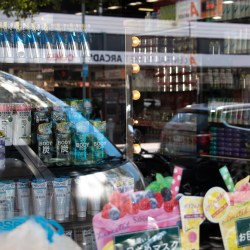
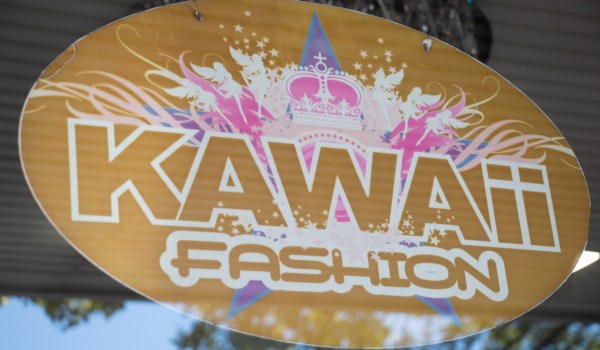
The fact that updates from SA Health on the daily changes to coronavirus restrictions would not be supplied in Mandarin or Cantonese languages only frustrated matters further.
The task of disseminating this information was left to not-for-profit Chinese Welfare Services of SA Inc., and sometimes Simon himself. He would translate health messages for South Australia’s Chinese-speaking community and distribute them through online messaging platform WeChat.
“It was on the 27th of January [last year] when it was the first time I met with Professor Nicola Spurrier. In the very beginning of the pandemic, I asked her to have someone in place because the community needs a single source of truth,” Simon says.
“We have a lot of WeChat groups… that connect with students. Every single time the government announced anything we immediately have the Chinese version and the English version on the WeChat group so people can see it. We have a lot of volunteers.
“Some of the media, if they got delayed because of the translations and whatsoever. They are making the report about things three days ago. And whatever information came out three days ago does not apply today. There were a lot of negative repercussions from this style of communication.”
An SA Health spokesperson told CityMag they have received no complaints in regards to how they disseminate information to non-English speakers and worked with “Multicultural Affairs, trusted community leaders and many NGOs” to ensure all South Australians have access to the most accurate and latest information and health advice.
“We have developed a range of translated resources about COVID-19, in addition to what the Commonwealth Department of Health have developed, to ensure multicultural community groups have relevant health information,” the spokesperson said via email.
The SA Health website includes translated messages in a range of languages, however some languages have two notices while others have 10. The communications range from dated daily health advice to posters on how to wear face masks, which can be printed and plastered on business walls.
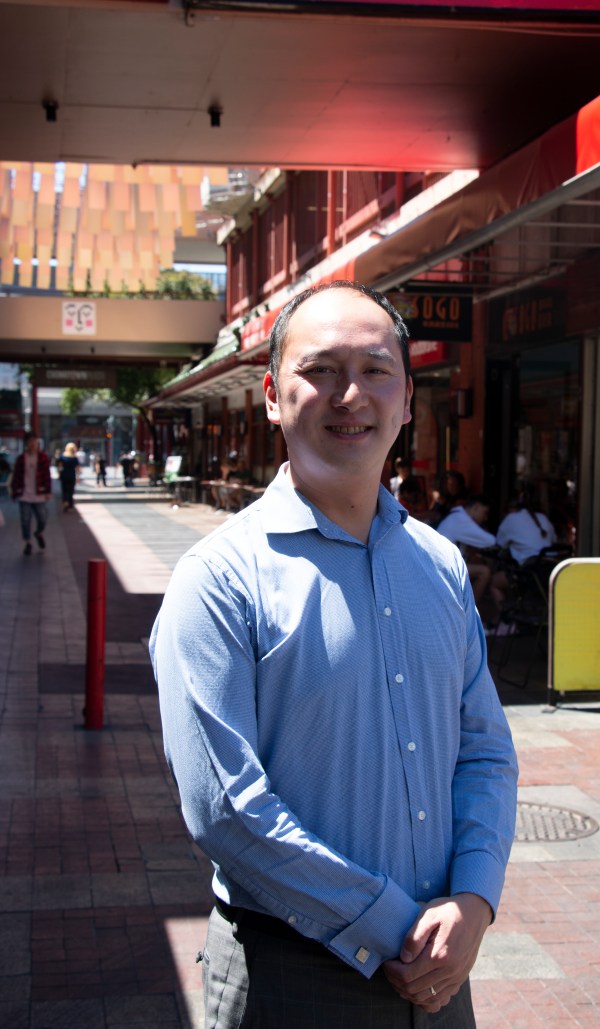
Despite all that 2020 wrought on Chinatown and the broader Adelaide CBD, Simon believes the city’s south-eastern quadrant will recover. He’s already seeing business pick up again and community attitudes calm.
“We will bounce back a lot faster than any other place,” he says.



